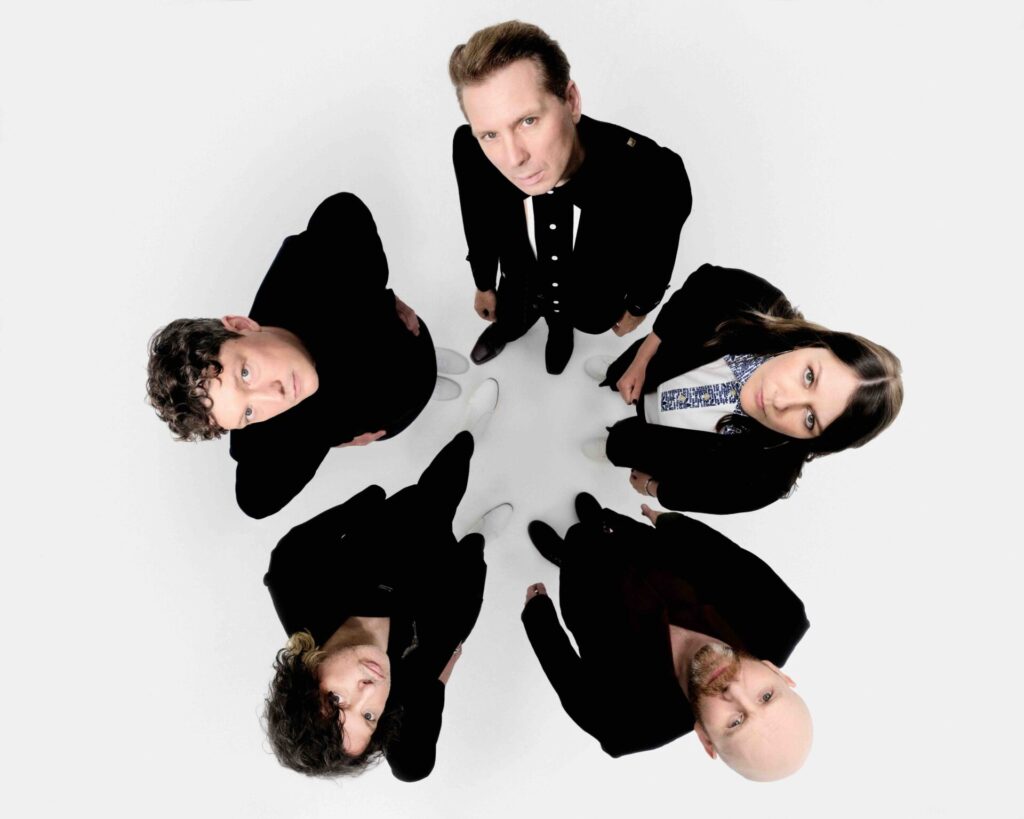By Johnny Papan
From leather-bound poultry to intergalactic dance parties, BC’s biggest electronic festival delivered a new level of strange this year.
As frontman Alex Kapranos reflects, this blending of disparate sounds wasn’t always welcomed with open arms. Two decades later, Kapranos continues to embrace the tension between fear and audacity, steering the band into uncharted territory on their upcoming album, The Human Fear.
Speaking from Paris, Kapranos unpacks how grappling with fear—whether in his music, personal life, or cultural identity—has fueled the band’s bold, evolving sound. “You always see art movements come about with pissing off the previous movements,” Franz Ferdinand frontman Alex Kapranos tells RANGE via Zoom. He recalls the Glasgow quintet facing criticism when it formed in 2002 for having both an art school sensibility and love of grand riffs and choruses.
As Kapranos notes, backlash arises when multiple genres collide to form something new. Following the lead of his grade school favourites The Specials and Madness, who combined Jamaican ska and punk rock, Kapranos made it his mission to mix influences as incongruous as The Fall and Duran Duran. Purists from the tail end of the slacker generation in particular rejected Franz Ferdinand, but, as Kapranos boasts, “That gave me a lot of satisfaction.”


History frequently labels artists who push against the grain as “fearless,” but “If there is no fear in your life, then you probably don’t feel very alive,” Kapranos contests. He keeps pushing in search of more fitting words: “Contrary, bold, audacious! Yeah, that’s the word! You have to be audacious to overcome fear.”
“Rather than being fearless, I think it’s greater to know fear, to understand fear, and to overcome fear,” Kapranos continues. “That’s where you get the greatest reward in life. That’s what makes you feel alive. Think of all the great things that you do within your life that involve overcoming a sense of fear, whether it’s the first time you get behind the wheel of a car – fuckin’ ‘ell – or whether it’s asking your significant other out on the first date. Understanding fear and overcoming it, that is life-affirming.”
Kapranos experienced the life-affirming power of overcoming fear when he proposed to his partner last year. “I’d managed to go through 50 years of life without ever getting married and presuming that I never would, and then suddenly, it seemed like the right thing to do,” he says. “And that’s been very rewarding. I’m glad I finally did it.”

Despite having once taken to heart early 20th Century writer and literary critic Cyril Connolly’s sentiment that “There is no more sombre enemy of good art than the pram in the hall,” Kapranos no longer fears he’ll have to sacrifice his creative life for family. “Not only is there space for creativity, but marriage contributes towards it as well. It gives you a shitload to write about!”
Kapranos ruminates on commitment and conquering fear throughout Franz Ferdinand’s upcoming sixth album, The Human Fear, out January 10 via Domino. Refreshing their creative approach, the band prepared a songbook of new material before entering the studio. The extra songwriting rigour resulted in an opulent rock album that swaggers with Franz Ferdinand’s usual foot-stomping energy, while also pushing their penchant for dynamic, unpredictable twists and turns to a whole new level. But one particular song sounds quite unlike anything Franz Ferdinand have written before.
“‘Black Eyelashes’ was about exploring my Greek identity,” says Kapranos, whose father is Greek. “I grew up like a lot of children of immigrants: you have a strange connection with your roots simultaneously with a distance from it.”
In Greek music, “You often hear songs refer to black eyelashes, black eyebrows, or black eyes,” Kapranos explains. Over a Greek-influenced melody, Kapranos sings in his ancestral tongue, “He’s not Greek / He doesn’t speak Greek / Why doesn’t he speak Greek? / He’s not Greek.” “That’s what I would hear when I was a kid. And yet, I knew I was Greek. Even the way I gesticulate, the way I talk, my temperament – a lot of the way I understand the world is Greek.”
Audacious and brimming with vigour, The Human Fear proves that after 22 years, Franz Ferdinand’s creative momentum is still, like Kapranos’ Greek identity, undeniable.
By Johnny Papan
From leather-bound poultry to intergalactic dance parties, BC’s biggest electronic festival delivered a new level of strange this year.
By Ben Boddez
Jasamine White-Gluz’s love of creepy crawlies inspires a project reflecting the many sounds of nature through a shoegaze lens.
By Cam Delisle
The Calgary-born pop powerhouse brought her high-voltage Miss Possessive Tour to Rogers Arena for two consecutive sold-out shows.